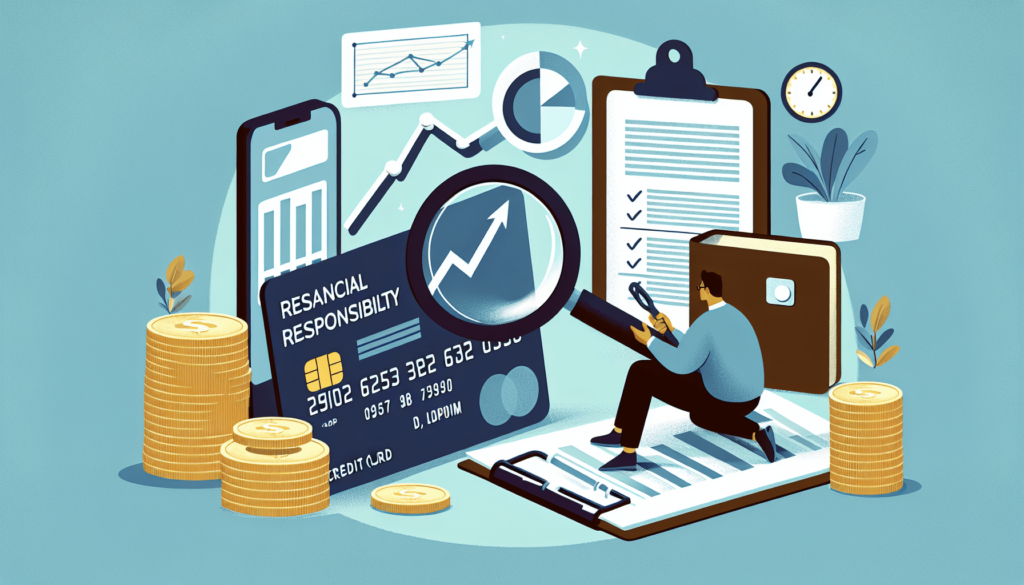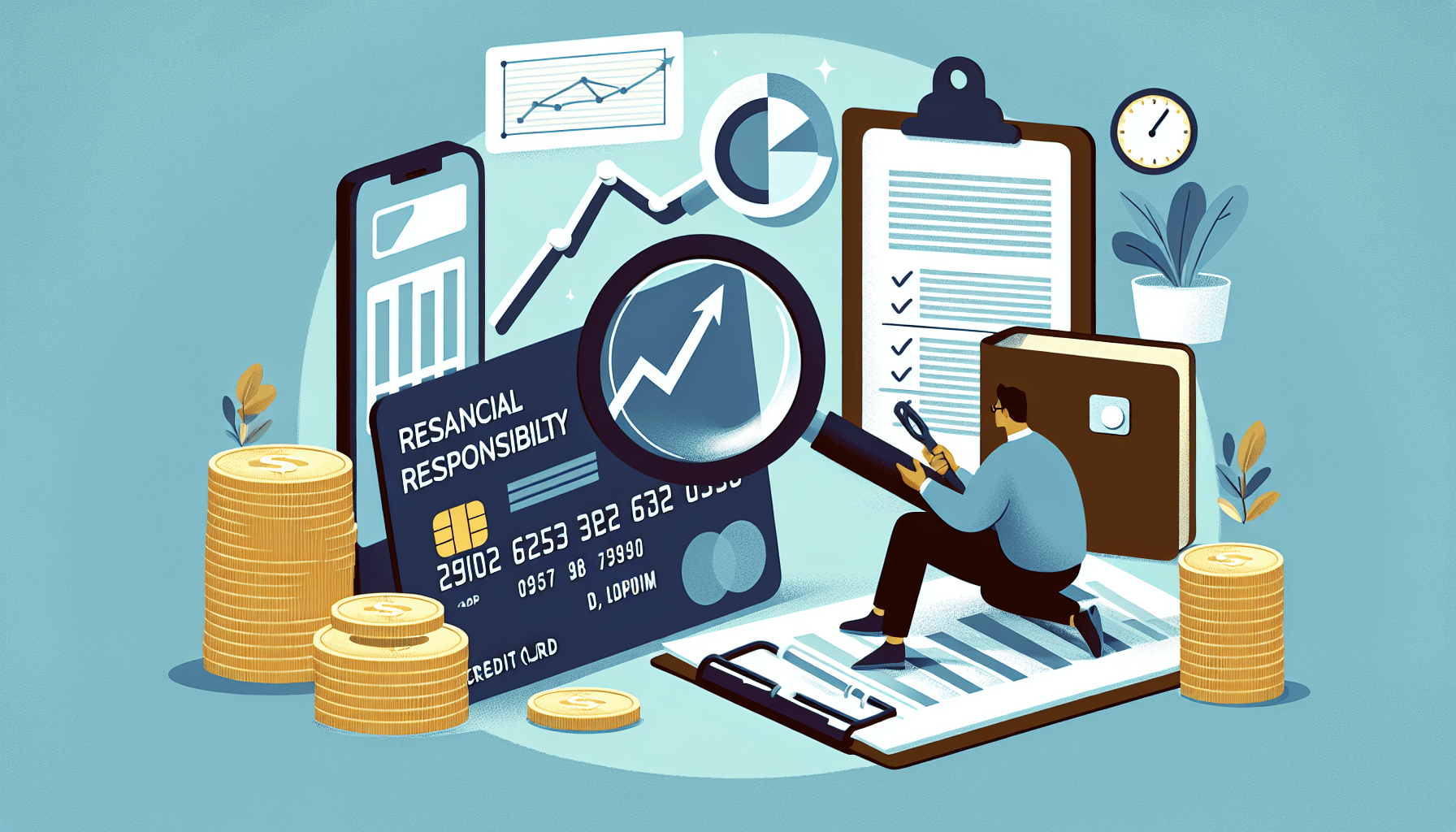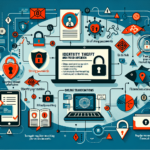In today’s world, personal finance management is a crucial skill that everyone should strive to master. Whether it’s budgeting effectively, planning for retirement, or navigating the complex web of credit management, there are numerous aspects to consider. One particular area that often raises questions and concerns is improving your credit score and managing debt responsibly. Understanding how these two factors interplay can have a significant impact on your financial well-being. By making informed decisions and adopting smart strategies, you can take control of your credit score and ensure that your debt is not a burden but a tool for financial growth.
Understanding Credit Score
What is a credit score?
A credit score is a numerical representation of an individual’s creditworthiness. It is a measure of how likely someone is to repay their debts and is used by lenders to determine whether to approve someone for a loan or credit card. Credit scores can range from 300 to 850, with higher scores indicating better creditworthiness.
How is a credit score calculated?
Credit scores are calculated using a variety of factors, including payment history, amounts owed, length of credit history, new credit, and credit mix. Payment history is the most significant factor, accounting for about 35% of a credit score. This includes whether you pay your bills on time and if you have any missed or late payments.
Importance of a good credit score
Having a good credit score is essential for financial well-being. It affects your ability to borrow money, secure low-interest rates, rent an apartment, and in some cases, even get a job. A high credit score demonstrates financial responsibility and makes it easier to obtain credit on favorable terms.
Checking Your Credit Report
Why should you check your credit report?
Checking your credit report is crucial to ensure its accuracy and to spot any errors or fraudulent activity. Errors on your credit report can negatively impact your credit score and may lead to higher interest rates or difficulties obtaining credit. Regularly reviewing your credit report allows you to identify and address any issues promptly.
How to obtain a free copy of your credit report
You are entitled to one free copy of your credit report from each of the three major credit bureaus – Equifax, Experian, and TransUnion – every 12 months. To obtain your free credit report, you can visit AnnualCreditReport.com, where you can request the reports online, by phone, or by mail.
Reviewing your credit report for errors
When reviewing your credit report, carefully check for inaccuracies such as incorrect personal information, accounts you didn’t open, or late payments that were reported incorrectly. If you find any errors, you should dispute them with the credit bureau and provide supporting documentation to correct the information.
Paying Bills on Time
Why is paying bills on time important?
Paying bills on time is vital for maintaining a good credit score. Late payments can negatively impact your credit history and lower your credit score. Additionally, late payments may result in late fees, increased interest rates, and other penalties. Paying your bills on time shows lenders and creditors that you are reliable and responsible with your finances.
Setting up automatic payments
Setting up automatic payments is an effective way to ensure you pay your bills on time. Most utility companies, credit card issuers, and loan providers offer automatic payment options. With automatic payments, the bill amount is deducted from your bank account on the due date, eliminating the risk of forgetting to make a payment.
Creating a payment schedule
If automatic payments are not an option, creating a payment schedule can help you stay organized and ensure you never miss a due date. Set reminders in your calendar or use a budgeting app to keep track of when bills are due. Prioritize your payments by due date and allocate funds accordingly to avoid late payment fees.

Reducing Credit Card Debt
Understanding credit utilization ratio
The credit utilization ratio is the ratio of your credit card balances to your credit limits. It is an important factor in calculating your credit score. To calculate your credit utilization ratio, divide the total credit card balances by the total credit card limits. It is advisable to keep your credit utilization ratio below 30%.
Tips for paying off credit card debt
Start by paying more than the minimum payment each month. This will help you pay off your credit card debt faster and save money on interest charges. Consider using the debt snowball or avalanche method to prioritize your debts. It is also important to avoid accumulating new credit card debt while you are paying off existing balances.
Consider debt consolidation
If you have multiple credit card debts with high interest rates, you may want to consider debt consolidation. Debt consolidation involves combining multiple debts into one loan with a lower interest rate. This can make it easier to manage your debt and potentially save money on interest payments.
Managing Different Types of Debt
Understanding the types of debt
There are various types of debt, including credit card debt, student loans, mortgage loans, car loans, and personal loans. Each type of debt has its own terms and conditions, interest rates, and repayment plans. It is essential to understand the specific details of each type of debt you have and how they impact your overall financial situation.
Strategies for managing each type of debt
To effectively manage different types of debt, it is essential to prioritize your payments, understanding the interest rates and repayment terms associated with each debt. Consider making extra payments towards debts with higher interest rates first, as this can save you money in the long run. Utilize budgeting tools to create a debt repayment plan and track your progress.
Prioritizing debt repayment
When managing multiple debts, it is crucial to prioritize debt repayment based on factors such as interest rates, outstanding balances, and financial goals. By paying off high-interest debts first, you can reduce the overall amount of interest paid and become debt-free sooner. Make a list of your debts, organize them, and focus on paying off one debt at a time while making minimum payments on the others.
Avoiding Missed Payments
Setting reminders for payment due dates
To avoid missed payments, set up reminders for payment due dates. Use calendar alerts on your smartphone or computer, or set up automatic reminders through your bank’s online banking system. Regularly check and update your reminders to ensure you stay on top of your payment obligations.
Utilizing payment apps and online banking
Many payment apps and online banking platforms offer features that allow you to set up payment reminders and schedule automatic payments. Take advantage of these tools to simplify your financial management and ensure you never miss a payment. Monitor your accounts regularly to ensure payments are processed correctly and funds are sufficient.
Negotiating alternative payment arrangements with creditors
If you are unable to make a payment on time due to financial constraints, it is important to communicate with your creditors. Contact them as soon as possible to discuss alternative payment arrangements, such as a temporary forbearance or a modified repayment plan. Most creditors are willing to work with you if you are proactive and maintain open lines of communication.
Utilizing Debt Snowball or Avalanche Method
How does the debt snowball method work?
The debt snowball method involves paying off debts in order of smallest to largest balance, regardless of interest rates. Start by making minimum payments on all debts, and allocate any extra funds towards the smallest debt. Once the smallest debt is paid off, redirect the funds towards the next smallest debt. This method provides a sense of accomplishment and motivation as debts are paid off one by one.
How does the debt avalanche method work?
The debt avalanche method focuses on paying off debts in order of highest to lowest interest rate. Make minimum payments on all debts, and allocate any extra funds towards the debt with the highest interest rate. Once that debt is paid off, redirect the funds towards the next highest interest rate debt. This method saves more money on interest payments in the long run.
Which method is right for you?
The choice between the debt snowball and debt avalanche methods depends on your personal preferences and financial situation. The debt snowball method is beneficial if you value quick wins and motivation, while the debt avalanche method may save you more money on interest payments. Assess your priorities and financial goals to determine which method is a better fit for you.
Being Mindful of Credit Utilization
Understanding credit utilization ratio
Credit utilization ratio is the percentage of your available credit that you have used. It is calculated by dividing your credit card balances by your credit limits. A lower credit utilization ratio is generally better for your credit score. Keeping your credit utilization low demonstrates responsible credit management.
Tips for keeping credit utilization low
To keep your credit utilization low, try to pay off credit card balances in full each month. If that’s not possible, keep your balances as low as possible compared to your credit limits. Avoid maxing out credit cards and spreading your spending across multiple cards. Also, regularly check your credit limits to ensure they are accurate.
Increasing credit limits
Another way to improve your credit utilization ratio is by increasing your credit limits. Contact your credit card issuer and request a credit limit increase. This can help lower your credit utilization ratio, as you will have more available credit even if your balances remain the same. However, be cautious not to increase your credit limits if it will lead to excessive spending.
Building a Positive Credit History
Opening a secured credit card
If you have little to no credit history or need to improve your credit, opening a secured credit card can be a good option. A secured credit card requires a cash deposit as collateral, which becomes your credit limit. By using a secured card responsibly and making timely payments, you can establish or rebuild your credit history.
Becoming an authorized user
Another way to build credit is by becoming an authorized user on someone else’s credit card. As an authorized user, the primary cardholder’s payment history and credit utilization will be reported on your credit report. Choose someone with good credit habits and ensure that their credit card issuer reports authorized users’ activity to the credit bureaus.
Being cautious of unnecessary credit inquiries
Avoid unnecessary credit inquiries, as they can temporarily lower your credit score. Only apply for credit when necessary and be mindful of inquiries from lenders or companies you are not familiar with. Too many credit inquiries in a short period can raise red flags for lenders and negatively impact your credit score.
Seeking Professional Credit Counseling
When to consider credit counseling
If you are struggling with debt, having difficulty making payments, or need guidance on managing your finances, it may be time to consider credit counseling. Credit counseling agencies can help you create a budget, negotiate with creditors, and develop a debt management plan to regain financial stability.
Finding reputable credit counseling agencies
When seeking credit counseling, it is important to find a reputable agency. Look for agencies affiliated with the National Foundation for Credit Counseling (NFCC) or the Financial Counseling Association of America (FCAA). These organizations require credit counseling agencies to adhere to strict standards and provide certified counselors.
What to expect from credit counseling
During a credit counseling session, a counselor will review your financial situation, help you understand your options, and develop an action plan tailored to your needs. They can provide education on budgeting, debt management, and credit improvement strategies. Credit counseling can be a valuable resource for individuals looking to improve their credit and take control of their finances.




